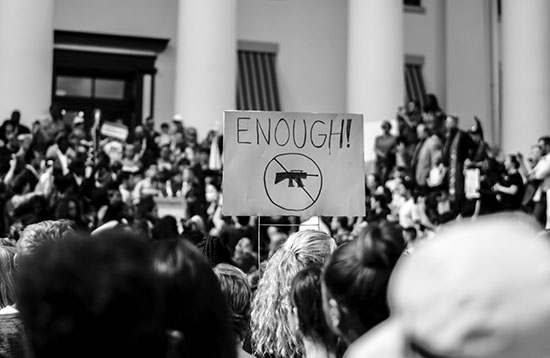Para español lea “El Paso, el dolor, el reto”.
El Paso, Texas, is a symbolic city for the United States. Located next to the Rio Grande river (or Rio Bravo, as it is known in Mexico), it is one of the meeting points that resumes the long construction history of the North American southwest.
In recent years, the city has acquired three particular traits: a vibrant economy, which benefits both sides of the border, a population that is 80% Hispanic, and, surprisingly, one of the five safest cities in the U.S. El Paso is iconic because it dismantles the fallacious, racist, and xenophobic arguments that inspire Trump’s rhetoric. Former congressman (and Democratic primary candidate) Beto O’Rourke has made this storyline a relevant issue in the national conversation that would otherwise go unnoticed.
The terrorist act committed on August 3 in El Paso adds a painful element to the characterization of this symbolic city. A Caucasian man, evidently inspired by the political hate discourse, drove ten hours from a Dallas suburb to El Paso to kill Hispanics at the border. He released a document in which he denounced his desire to end the Hispanic U.S. invasion because he believes it threatens its culture, security, and future. This pathologically criminal act resumes the entire harmful and destructive burden represented by the racist and xenophobic perspective.
This latest act of terrorism is one more of a series of events that, in the last few years, have brought the U.S. to mourn its people, in what appears to be either an expression of either racial hatred or against ethnic and religious groups. This time the terrorist attack occurred in El Paso against Hispanics. Previously it was at the Tree of Life Synagogue in Pittsburgh, on October 27, 2018; or at the Emanuel African Methodist Episcopal Church in Charleston, South Carolina.

The white supremacist and religious extremism discourse, which has been empowered since Trump’s rise to power, has intermingled with the unusual, unexplained, and unjustified laxity of U.S. regulations. These laws facilitate open and retail trade of weapons of all kinds, including those of repetition and assault—weapons of war—, which even exceed those typically carried by a police officer.
The first bell toll happened in August 2017 in Charlottesville, Virginia, with the events and violence of extremist groups. Trump, irresponsibly, said there “were fine people on both sides.” Once again, opening the dangerous window through which this storm enters. His political and electoral discourse permanently appeals to the rhetorical “dog-whistle politics” strategies in which the audience assumes “coded” political proposals and words, which mobilize the lowest and most dangerous instincts of racism and xenophobia. They are called that way because, as happens with the dog whistle, only those who have those prejudices hear those words.
Let us be clear: Trump began his campaign with a ferocious attack (which has not ceased) towards Latinos and immigrants in general, refusing to both grant deserving opportunities to most of our people and recognize their tremendous and noble contribution to the progress of the U.S. His speech also denies the nation’s Hispanic roots that are interwoven in its history and are part of its essence. Then again, it was Trump the one who led the abominable “birtherism” media movement that questioned President Barack Obama’s citizenship, demanding to see his birth certificate. Add to this his recent comments against congressman Cummings and the city of Baltimore, as well as numerous and repeated manifestations of contempt for diversity. Trump’s absolute lack of empathy manifested during his visit to El Paso. There, he posed smiling, with happy and triumphant gestures of his electoral style. He did not offer a single condolence gesture towards the Hispanics who are suffering in both El Paso and throughout the country because of the terrorist attack’s repercussions and symbolism.
The El Paso attack has forever changed the experience of being Hispanic or immigrant in this country. The feeling of anguish, pain, struggle, and demand for respect and inclusion will not cease until people in the U.S. close the Pandora’s box, which Trump opened to awaken horrible and dangerous emotions, once thought to have been overcome.
The corresponding attitude, full of wisdom and resilience, was foreshadowed in a popular Mexican proverb, believed to be of Mayan origin: “They wanted to bury us, but they didn’t know we were seeds.”
Hispanic heritage is and will forever be part of American history. From now on, more than ever, we will have to bravely demonstrate our dignity and the strength of our electoral power, demanding vindication by exercising our vote.
